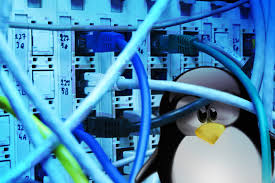Linux
Microsoft is porting SQL Server to Linux
- Greg Duffy
- Tue, Mar 8, 2016

Something I thought I’d never see !. An article on ZDNet discussing Microsoft’s plans to make available a private preview of SQL Server for Linux, with plans to make the product generally available by mid-2017.
This is interesting given the original heritage of Microsoft SQL Server and it’s relationship to Sybase which was at the time primarily a Unix based SQL server database system.
The following extract from Wikipedia described it’s origins.
In 1988 Microsoft joined Ashton-Tate and Sybase to create a variant of Sybase SQL Server for IBM OS/2 (then developed jointly with Microsoft), which was released the following year.[5] This was the first version of Microsoft SQL Server, and served as Microsoft’s entry to the enterprise-level database market, competing against Oracle, IBM, and later, Sybase. SQL Server 4.2 was shipped in 1992, bundled with OS/2 version 1.3, followed by version 4.21 for Windows NT, released alongside Windows NT 3.1. SQL Server 6.0 was the first version designed for NT, and did not include any direction from Sybase.
Interesting times indeed in the Microsoft world.
Big Data - Hadoop, MongoDB, ElasticSearch
- Greg Duffy
- Sun, Aug 30, 2015

Big data is a broad term for data sets so large or complex that traditional data processing applications are inadequate. Challenges include analysis, capture, data curation, search, sharing, storage, transfer, visualization, querying and information privacy.
The term often refers simply to the use of predictive analytics or certain other advanced methods to extract value from data, and seldom to a particular size of data set. Accuracy in big data may lead to more confident decision making, and better decisions can result in greater operational efficiency, cost reduction and reduced risk.
Analysis of data sets can find new correlations to spot business trends, prevent diseases, combat crime and so on. Scientists, business executives, practitioners of medicine, advertising and governments alike regularly meet difficulties with large data sets in areas including Internet search, finance and business informatics. Scientists encounter limitations in e-Science work, including meteorology, genomics, connectomics, complex physics simulations, biology and environmental research.
The future of the Operating System - LinuxCon 2015 keynote
- Greg Duffy
- Fri, Jun 5, 2015

The following was given as a keynote at LinuxCon + CloudOpen Japan 2015.
There is also some great history in the linked slideshow and also a discussion of how things have evolved over the years to the point where we are at now where there is some serious disruption underway. Docker is also given great wraps as a way to move to the next evolution step in distributing and running applications.
To quote: "Linux has become the foundation for infrastructure everywhere as it defined application portability from the desktop to the phone and from to the data center to the cloud. As applications become increasingly distributed in nature, the Docker platform serves as the cornerstone of Linux’s evolution solidifying the dominance of Linux today and into tomorrow."
Read more at the spf13.com web site: http://spf13.com/presentation/the-future-of-the-os-linuxcon-2015-keynote/
Virtualization
- Greg Duffy
- Sat, May 2, 2015

In computing, virtualization refers to the act of creating a virtual (rather than actual) version of something, including virtual computer hardware platforms, operating systems, storage devices, and computer network resources.
Different types of hardware virtualization include:
-
Full virtualization – almost complete simulation of the actual hardware to allow software, which typically consists of a guest operating system, to run unmodified.
-
Partial virtualization – some but not all of the target environment attributes are simulated. As a result, some guest programs may need modifications to run in such virtual environments.
-
Paravirtualization – a hardware environment is not simulated; however, the guest programs are executed in their own isolated domains, as if they are running on a separate system. Guest programs need to be specifically modified to run in this environment.
In addition to the traditional Virtualization platforms such as VMware, HyperV, Xen and KVM, we also have expertise in the latest craze, containerisation. This is best exemplified by Docker but also exists in a very compelling form on the SmartOS platform.
Bookmark
Recently Added
Popular Tags
© ByteBack Group 2015. Privacy Policy | Terms of Service